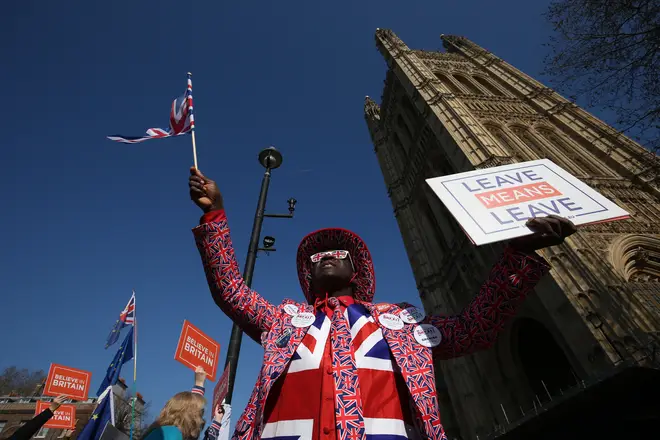
Paul Brand 10am - 12pm
1 March 2019, 14:43 | Updated: 2 March 2019, 09:43

Britain may be leaving the EU, but will Brexit stop the UK taking part in the Eurovision song contest?
This year's Eurovision Song Contest takes place on Saturday 18th May in Tel Aviv.
With the UK’s departure from the EU scheduled for March 29th, 2019 will be the first Eurovision after Brexit.
Some fans of the annual event are worried that Britain's EU exit means the UK can no longer take part - but is that true?

Even before the referendum result in 2016, the then Prime Minister David Cameron gave this assurance during PMQs.
"Given that Israel and Azerbaijan and anyone anywhere near Europe seems to be able to enter - and Australia - then I think we’re pretty safe from that one."
There's further good news too (well, if you're a fan).
The European Broadcasting Union, which organises the event, previously issued a statement saying:
"The BBC is a Member of the European Broadcasting Union and is, and will remain, eligible to participate in the Eurovision Song Contest.
"Just like many broadcasters from countries that are not a member of the European Union.
"The BBC and the UK have a long relationship with the Eurovision Song Contest.
"The BBC, representing the UK, will therefore remain a welcome participant in the Contest next year and going forward."

Contrary to popular belief, the Euro in “Eurovision” doesn’t actually stand for Europe.
It actually refers to the aforementioned European Broadcasting Union (EBU).
Its job, amongst other things, is to provide its members with TV and radio footage of an event.
It means individual companies do not have to each send their own camera crews to cover things such as the Eurovision Song Contest.
Membership of the EBU isn’t geographically restrict to Europe - which is why we see countries like Israel, Azerbaijan, Morocco and Australia taking part.